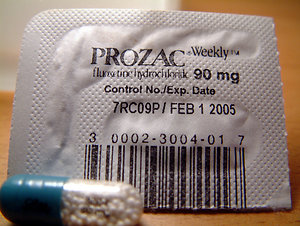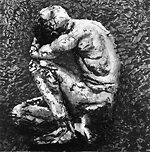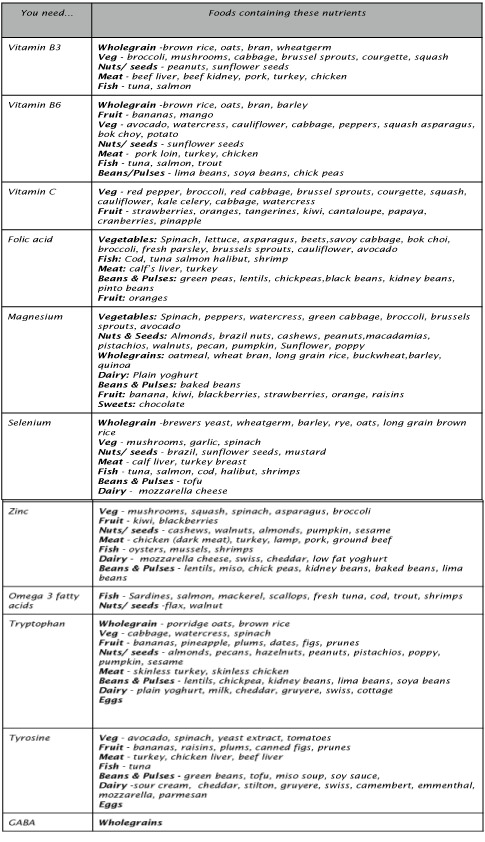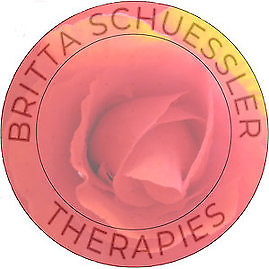Help with depression
Depression often gets split into three categories, mild, moderate and clinically depression. Moderate and mild depression is more likely to respond to the things I suggest here. Severe depression is a terrible thing and working with it will take time and determination. It might lift slightly, if you try some of the things mentioned below, but it is more likely that you will need to start doing some therapy. This is also true, if you experience mild or moderate depression that keeps reoccuring or has been there for a years.
A word about anti-depressants.
They are the go-to solution for most GPs, when they have diagnosed a person with depression. When we are depressed, especially when we are severely depressed, our motivation and ablitiy to help ourselves or to reach out and get effective help feels impossible. We can feel very trapped in a vortex of fatigue, lack of motivation, helplessness and hopelessness. Under these circumstances anti-depressants can help to lift you enough out of your depression so you can become motivated enough to do something about it. The problem with anti-depressants for me is that they do not - on their own - address the causes of your depression. All they do (if you are lucky) is manage your symptoms. But they can come at a price. And a lot of people find that they revert back to feeling depressed, when they try to come off their medication. This is a clear indicator that the underlying problem that is causing the depression has not been addressed.
I do not think that anybody should be on anti-depressants long term, i.e. more than two years. If you have been on anti-depressants for that period of time, or longer and you have not found that you are feeling significantly better, or that you cannot stop using the anti-depressants, you need more help. Obviously therapy can be a very effective way of working with the underlying reasons for your depression. I am not all against anti-depressants. Used short term, they can be extremely useful to help you become functional enough to start addressing the underlying reasons for your depression. On their own, as a treatment for depression, I think they are limited. If you don't like anti-depressants here you can find ideas on how to begin to lift your depression without them.
Are you depressed?
Ali Taylor a specialist in brain function suggests that men and women have different symptoms associated with depression. She thinks, this explains why so many men go undiagnosed for a long time. Their symptoms are not the classic symptoms associated with depression and therefore men do not seek out help for depression. They are not aware that this is what is going on for them.
Symptoms of depression for women:
Feeling blue
Turn inward
Self-blame
Sadness
Procrastination
Avoiding conflict
Sleep too much
Loss of boundaries
Guilt
Self-medication (food, alcohol)
Isolation, withdrawl
More likely to self-harm
Symptoms of depression for men:
Irritation
Acting out
Blaming
Anger
Compulsive
Suspicious, guarded
Creates conflict
Not enough sleep
Breach of boundaries
Shame
Libido low, sexual performance problems
Self-medication (sex, alcohol, food)
Distract themselves through using TV, movies and the internet
More likely to commit suicide
Situational depression
If you have suffered from a loss or a bereavement you might suffer from what is called Situational Depression. This type of depression will fade over time. It heals itself and does not require anything apart from your willingness to experience it and to process the meaning of what has been lost. This natural healing process might still take a significant amount of time, especially if the loss is capital, like the loss of your health, your livelihood, a loved one, or a dear pet. These type of losses take their own time to heal as they require of us that we first and foremost accept the loss of who or what was precious to us; secondly letting go off what we have lost and finally re-adjusting ourselves to a life without what we have lost. But unless you suffer from complicated grief, or the loss has caused some trauma, the intensity of the depression will decrease over a period of time. If you continue to feel really low or angry after six months or more, it might be a sign that you might not be able to get out of the loop. This then leads to the second type of depression: Clinical depression.
Clinical depression
This type of depression is not necessarily bound to a loss in the present though that can be a trigger. Clinical depression can come seemingly out of the blue and hit us hard. Or it might be with us for years on end dulling our experience of life and our sense of fulfilment and purpose, dragging us down further and further into a black hole of misery. This might be to do with past experiences that we have not processed and detached ourselves from, our childhood or even our predisposition to depression due to epigenetics. The things that I suggest below can make a difference to this type of depression, if it is mild or moderate. However, I would also want to encourage you to think about finding a good therapist who can help you explore the psychological reasons that will underly your depression.
Appreciation, a powerful antidote to depression
Have you noticed that you tend to become very focused on the negative aspects of life, when you feel depressed. It's as if our mind wants to confirm that it is right in being miserable. This negative bias is part of the reason why depression can so easily escalate from a mild depression into something really serious. Our mind takes us down a negative spiral and we forget that life is not just doom and gloom. As with all mental wellbeing what you think and how you perceive and interpret the world has a massive impact on how you will feel about yourself, the world and others. Research has shown that you can counteract and reverse the trend of getting less and less depressed by using appreciation and praise. Learn to see the extraordinary in the ordinary and your life will transform!
Here is a mind exercise you can do to help yourself foster joy and positivity. It comes in two parts. The first is to help you learn to appreciate yourself more deeply and acknowledge that you do things well. The second one is about appreciating the good things that surround us and happen to us every day. You need a notebook or a diary for this. You can do this either first thing in the morning, thinking back over the previous day, or in the evening, reflecting on what your day has been like.
Part One:
Think back over the day and write down at least three things that you have done well today, the more the merrier! This can be anything. It does not need to be anything big. For example, you might have made a nice cup of tea this morning, or you smiled at somebody in passing. Whilst you are writing. Bring this to mind as vividly as you can and savour the experience again. Acknowledge consciously and as wholeheartedly as you can, that you are doing something well. Notice that you will have voices coming up that might minimise or dismiss your accomplishments. Try not to listen to their objections, especially those who compare you unfavourably with others.
Part Two:
Think back over the day and write down at least three things that made you feel good today, the more the merrier! When you remember a good thing happening take a moment and really savour the feelings that are coming up. Employ all your senses to bring back these memories as you will give your nervous system a great boost when you do this. Again this is not about big, dramatic things, like winning the lottery, but about the small things in life. For example, the sun was shining when you got out of the door, your favourite song was on the radio, somebody smiled at you in passing. Life is full of goodness, all we need to do is to be open and receptive to what is there for us, no matter how small and seemingly insignificant in the greater scheme of things. A lot of small things add up to a great deal!
Do this exercise daily for at least a month and notice how it changes your outlook and your mind. On bad days, when you feel really rotten and you cannot see anything good in yourself or the world, look back at your previous entries and boost your moral by reliving past events that you have recorded as good.
If you want to know about other activities that can help you with overcoming your depression, here is a link to a self-help page.
Food to lift your mood
Have you ever heard the expression: You are what you eat?
I am a strong believer in this. I think that what we eat, how we eat and in which contexts we eat all play a vital part, not only in our digestion and but in our emotions. Deficiencies in vital vitamins and minerals can cause our moods to become very painful indeed.
Have a look at the table below and see, if you can improve your diet to lift you out of depression. At first glance you might think that this is too much information, too many types of food to chose from. But if you look more closely, you will find that many of the foods listed contain more than one mineral or vitamin.
Disclaimer
The information provided here is for educational and informational purposes only and solely as a self-help tool for your own use. I am not, nor am I holding myself out to be a doctor/physician, nurse, physician's assistant, advanced practice nurse, or any other medical professional, psychiatrist, psychologist, or social worker, registered dietician, functional medicine practitioner or licensed nutritionist. I am not providing health care, medical or nutritional therapy services, or attempting to diagnose, treat, prevent or cure any physical issue, disease or condition. The information provided here is not intended to be a substitute for the professional medical advice, diagnosis or treatment provided by your own Medical Provider or a qualified nutritionist, naturopath, dietician, or functional medical professional. You agree and acknowledge that I am not providing medical advice in any way. Always seek the advice of your doctor, pharmasist, or nutritional expert regarding any questions or concerns you have about your specific health or any medications, herbs or supplements you are currently taking and before implementing any recommendations or suggestions from our website. Do not disregard medical advice or delay seeking medical advice because of information you have read on this Website. Do not start or stop taking any medications without speaking to your Medical Provider. The information contained on this website has not been evaluated by NICE.









